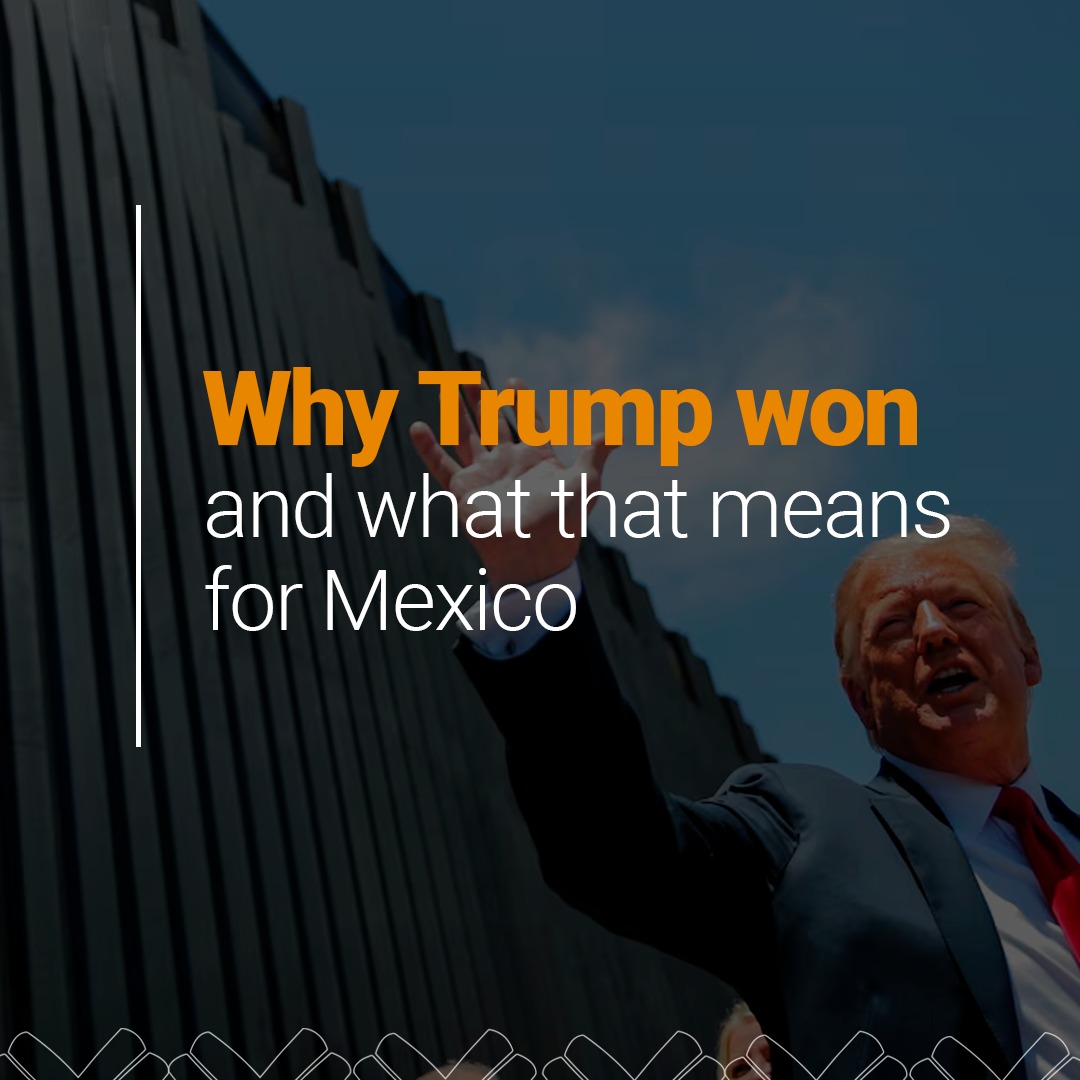 On April 8, President Felipe Calderon dropped a political bomb on the Mexican political scene. The Senate received an executive initiative that would fundamentally change the structure and operations of the oil company, Petroleos Mexicanos (Pemex). Key operations of the state-owned enterprise would be taken over by private companies.
On April 8, President Felipe Calderon dropped a political bomb on the Mexican political scene. The Senate received an executive initiative that would fundamentally change the structure and operations of the oil company, Petroleos Mexicanos (Pemex). Key operations of the state-owned enterprise would be taken over by private companies.
In the reform proposal, Calderon and his National Action Party (PAN) took care to avoid calling for modifying the Mexican Constitution. National ownership of petroleum is a touchstone of nationalist pride in Mexico since President Lazaro Cardenas expropriated private companies on March 18, 1938. At that time, citizens fed up with the arrogance and voracity of foreign oil companies supported the expropriation by donating everything from live chickens to family jewels to pay compensation and regain control of the resource. The Mexican Constitution is very clear about who owns Mexican oil: "The nation has direct dominion over all national resources of the continental platform … (including) petroleum and all solid, liquid, or gaseous hydrocarbons …"
The president announced the "energy reform initiative" as an administrative packet to save Pemex from a deep financial and operational crisis. To these neoliberal administrators, the only way out of this crisis is to turn to the private sector. According to the Calderon government, Mexican citizens and politicians must now acknowledge that Mexican administrators are incapable of rising to the lucrative challenge at hand, Mexican scientists can’t provide the needed technology, and Mexican consumers prefer public services in foreign hands.
That line will be a hard sell, given the history of the oil industry in Mexico and current trends in Latin America.
Bleeding Pemex
The campaign to privatize Pemex builds on fear and exaggerated claims of the perils of not doing what the president wants. A recent report from the refineries division lays out a scathing critique: "The refining industry is in a crisis situation that negatively affects its ability to comply with its objectives of efficiency and profitability in supplying domestic demand for petroleum products. This also keeps it from taking advantage of favorable conditions in the world market …"
It goes on to assert that "we have no comprehensive studies of infrastructure conditions, so processing plants experience four times more unplanned work stoppages than in (the U.S. Northern Gulf Coast.)" Insufficient and unreliable systems of transportation, distribution, and storage have led to a situation that "has decreased operational flexibility and limited our ability to respond to the needs of the market efficiently, which has increased the vulnerability of operations."
Pipelines are on average 25 years old, with numerous leaks and illegal connections. The lack of refining capacity cost Pemex an estimated $900 million dollars in 2000 and a whopping $3.5 billion dollars by 2007, and current demand dictates an immediate need to increase refinery capacity by 50%. The company devotes only a fifth as much resources to engineering in processing and manufacturing as it did 20 years ago.
Pemex today imports 40% of distilled petroleum products to cover domestic sales. The cost of imports has gone from $5.5 billion dollars in 2004 to $16.8 billion in 2007, with demand expected to grow. Proven reserves are rapidly being depleted and are calculated to last only 9.2 years.
According to the government’s own reports, then, Pemex is in shambles, largely due to a state of virtual abandonment over the past quarter of a century. Given the nation’s reliance on oil revenues, why weren’t new refineries built and old ones converted? Why was the infrastructure left to deteriorate?
Where the Responsibility Lies
Ironically the politicians calling for handing over refining and other Pemex operations to foreign companies are the same ones responsible at least in part for the company’s current incapacity. What all the reports fail to mention is that much of the deterioration of Pemex occurred under the watch of the same political party that now argues that the only way to save the company is to contract out to the private sector. Calderon served as Secretary of Energy in the Fox administration from 2003-2004. PAN governments have held power for nearly eight years, during which time Pemex had record sales due to high international oil prices. Why wasn’t that money reinvested in the oil company to avoid the current crisis?
The bleeding of Pemex was a conscious administrative and political decision, for two reasons. First, the funds siphoned out of the petroleum behemoth masked the real state of the Mexican economy. The Treasury Ministry used Pemex income, and especially the windfall profits of the past few years that are not earmarked in the congressionally approved budget, as a petty cash box. Much of this money went to pay off foreign debt. Some of it disappeared into corruption such as the "Pemexgate" case that diverted funds to support the PRI presidential candidacy. And much of the rest ended up in presidential pet projects. Successive administrations bled Pemex for political aims and with little or no accountability to Congress or the Mexican people.
Second, neoliberal administrators intentionally sought to create a dismal outlook for the state-owned enterprise to strengthen their difficult case for privatization. Only by presenting a doomsday scenario could they hope to pass the key legislative reforms regarding the oil industry that would finally fulfill the objectives for structural reform envisioned by the World Bank, the U.S. government, and Mexico’s neoliberal leaders.
In its 2003-2006 private-sector strategy paper for Mexico, the World Bank noted " It is estimated that the [energy] sector will require investments of $100 billion to $130 billion to keep up with economic growth over the next decade. These investment requirements will represent 10 to 15% of annual federal expenditures, and 50 to 60% of the federal investment budget … Thus, reducing the need for public sector funding, through promoting private sector participation, would be a critical element for the sector policy. Reform in the sector, along with that in petrochemicals, would attract much-needed financing for growth and efficiency, and present significant opportunities for the private sector." The International Finance Corporation has plans ready. "IFC will focus on pioneering projects for demonstration effects, as the sector broadens private participation in both production and distribution (including gas distribution, and oil and gas service contracts)." According to the World Bank, in 2006 hydrocarbons made up 38% of total public sector revenue. The privatizers do not calculate the potential loss of portions of Pemex revenue to private sector contracts and bonuses.
Although questions exist over just how bad off Pemex really is, no one doubts that it faces serious structural and operational problems. The debate is over how to solve them. Clearly, the state-owned company also faces a historically unprecedented opportunity for making money. Record high oil prices, growing domestic and international demand, available raw materials—any entrepreneur would consider this an almost ideal business prospect. Indeed, the pressure from transnational oil corporations to get into the Pemex business indicates that it is.
Mexican Oil, Foreign Profits?
In the publicity campaign leading up to the reform initiative, radio stations incessantly repeated the slogan, "The oil is ours, let’s go for it." The words sought to stamp in the public mind that the government was not really privatizing Mexican oil and that it was necessary to get the initiative off the ground right away so that all Mexicans could benefit.
Indeed, the Calderon administration insists that its current initiative will not privatize Mexican oil. In effect, foreign companies would not "own" the oil reserves, estimated at 29 billion barrels (about the same as in the United States) for oil and 30 trillion cubic feet for gas. What the initiative does is privatize management of the most profitable aspects, including refining, processing, and transport.
This isn’t the first initiative to open up the state-owned industry to private and foreign investment. Over the years, free-market presidents have adopted many methods to bypass the constitutional mandate. Petrochemicals were defined as secondary products and opened up to private investment. Service contracts broadened to include exploration and other previously closed areas.
Calderon’s latest initiative is a giant step further. For the first time, foreign firms could take part in refining and distribution. The contracts proposed do not deliver profits on sales directly to the private sector but provide for sliding benefits for "good performance."
Cuauhtémoc Cardenas, son of Lazaro Cardenas and founder of the opposition Party of the Democratic Revolution (PRD), calls this tantamount to risk contracts, but with a semantic veil. The constitution prohibits contracting, "in the case of petroleum and hydrocarbons or radioactive minerals, no concessions or contracts will be allowed and any that may have been delivered will not continue, and the nation will carry out the exploitation of these products." As such, the reform in its present form violates the constitution.
Moreover, the initiative may well be a slippery slope to complete privatization of the industry. The right has long wanted to privatize Pemex but the Fox administration never had the support or the political acumen to get the job done. Now the former ruling Revolutionary Institutional Party (PRI), which is divided on the reforms, could pass the reform in a majority block with the PAN. Since its nationalist roots conflict with neoliberal currents within its ranks, the outcome is still uncertain.
Going for the Gas
The biggest reason that both the Mexican government and transnational corporations want to break out of the constraints of a state-owned company lies buried in the deep waters of the Gulf of Mexico. Pemex reports reserves there of more than 29 billion barrels of crude. To get at this would require drilling 1,500 exploratory wells in order to discover oil in 300. The rate so far has only been two a year.
Deepwater drilling in the Gulf of Mexico constitutes more than three-fourths of offshore production. The high price of oil and new technologies have made deepwater drilling more economically attractive. A report of the U.S. government Minerals Management Services reports that m ore than $305 billion in investment in deepwater drilling is planned between 2007 and 2011, up from $204 billion between 2002 and 2006, with much of the growth coming from increased activity in deep-water areas in West Africa, Latin America, and the Gulf of Mexico.
The administration’s energy reform initiative defines sustainability as the ability to replace oil extracted with new reserves. The Pemex evaluation notes with alarm that, from 2000-2007, 230 new discoveries promised access to 5.7 billion barrels of crude oil, while production over the same period came to 12.5 billion barrels. "The difference between discovered reserves and production means that for crude oil and associated gas we did not achieve a rate of restitution for produced reserves …"
The idea that sustainability means reaching a replacement rate for a non-renewable resource by extracting more of the non-renewable resource flies in the face of concepts of sustainable development. What is "sustained" through this policy is fossil fuel dependency.
This whole-hog approach to exploitation of Mexico’s oil and gas reserves has caused concern among environmentalists. Yet the question of sustainable development and the environment has been practically absent in the political debate so far.
Mexico’s Nobel Prize winner in chemistry Mario Molina laments the exclusive focus by both the left and the right on the oil industry. "To center the debate only on oil implies using a myopic lens, since that fuel source will only last us 10 or 15 years at most. It’s urgent for Mexico to look to alternative energy sources such as solar and wind power," he says.
The reform mentions alternative energy but includes no programs or benchmarks in this area. The Center for Energy Research of the National University (UNAM) reports that Mexico could provide 30% of its total energy demand through renewable energy sources by the year 2025.
Latin America’s Reverse Privatization
Calderon’s proposal runs counter to much of what’s happening in the rest of the hemisphere. A 2007 Baker Institute Report finds that 77% of world oil reserves are in the hands of national oil companies, albeit with the participation of private capital in various phases such as in Brazil’s Petrobras. In Latin America, the trend is to increase state participation, regulation, and role in distribution of profits. Nations that experienced drastic privatization measures over the past decades of neoliberal reformers are moving back to public control over natural resources. The reason is simple: transnational oil companies looted and polluted the countries where they were drilling.
In Ecuador, indigenous communities have filed an environmental class action suit against Chevron-Texaco for polluting the jungle and harming the health of indigenous populations. The Ecuadorean government is in negotiations with international oil companies to increase state control of oil assets. President Rafael Correa recently took a proposal to European nations to support a sustainability plan to keep Ecuadorean oil in the ground. The proposal, reportedly received favorably, would have European countries and the international community compensate Ecuador $350 million dollars for not extracting all its oil in the environmentally sensitive region near the Yasuni park.
Shortly after being elected president, Bolivia’s Evo Morales decreed the nationalization of private oil companies on May 1, 2006. Oil and gas revenues increased from $172 million in 2002 to $1.57 billion in 2007. Morales has just moved to phase two of placing the oil and gas industry in state hands this May with plans to compensate four foreign-owned private companies for controlling interest, including giant Repsol of Spain.
In many cases, governments have been able to negotiate deals with the foreign companies maintaining operations under the new terms. This indicates that even when required to pay increased royalties and lose controlling interest, multinationals continue to find that extracting oil from developing countries is an attractive enterprise.
The Gauntlet Thrown
After ascending to the presidency in a contested election in 2006, instead of seeking national reconciliation Calderon immediately embarked on the roadmap laid out by the U.S. government, the World Bank, and other agents of corporate globalization, known as the "third generation" of structural adjustment reforms.
The Calderon reforms also move toward two primary objectives for the Bush security strategy promoted in the context of the North American Security and Prosperity Partnership (SPP). The first is to increase U.S. energy security by guaranteeing access to extensive deepwater reserves in the Gulf of Mexico, including Mexico’s portion of it. Of an estimated 53.8 billion barrels of crude in Mexico’s prospective reserves, nearly 55% is thought to lie beneath thousands of feet of water, salt, and earth in the deep waters of the Gulf.
The second objective is to open up the oil and gas production and market to foreign companies. The North American Competitiveness Council (NACC), the private-sector adjunct to the SPP, lays out the objectives for 2008: " Issue a benchmark analysis that illustrates PEMEX’s operating and financial performance gaps" (the March 30 evaluation fulfils this requirement) and "liberalize trade, storage, and distribution of refined products." This is covered in the proposed reforms. Chevron forms part of the NACC that takes part directly in the SPP trilateral negotiations.
Its International Bank for Reconstruction and Development (IRBD) is already banking on the reforms passing. An IRBD report during the Fox administration states, " In the energy sector the Bank will support the expected major reform actions in the petroleum, natural gas, and electricity sectors being contemplated by the government. Such an operation is expected to be supported by an AAA service for energy sector review." Delays in structural reform in the oil and gas industry—read privatization—have been cited repeatedly as a major obstacle to Bank plans in Mexico.
Neoliberal planners have for years coveted the Pemex reform bill, but popular rejection to the idea delayed it. The immediate response from the opposition proved just how incendiary the energy reform really is in Mexican politics today. The Broad Progressive Front took over the podium of both houses of Congress demanding a national debate on the Pemex reforms.
They won. The first in a series of 23 public forums to debate the energy reform was held on May 13, 2008.
Former presidential candidate Andres Manuel Lopez Obrador has been stumping across the country to prepare for massive mobilizations against privatization of the oil industry. Although his party the PRD is being torn apart by internecine battles, Lopez Obrador has a formidable ability to mobilize supporters, and the Pemex issue motivates more than perhaps any other public policy issue of the day. He has organized oil-defense brigades of women (Las Adelitas, after the women who participated in the Mexican revolution) and men.
Much more is at stake here than nationalist myths or even control over Latin America’s largest company. The Pemex reforms will plot a course for regional integration and Mexico’s economic future. The reform represents potentially excellent business opportunities for the already engorged oil transnationals and an extension for the fuel-dependent U.S. economy.
At the same time, deepwater drilling implies serious environmental risks and economic costs. Fuel dependency and the rapid depletion of the oil that’s left leave little hope for future generations. The current plan does not take into account increasing emissions or conserving energy for the future. Contracting out parts of Pemex also means the loss of a development tool that can be used for the public good.
The public has a right and need to participate in this crucial debate for the future of Mexico and of the region as a whole.



